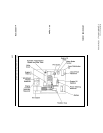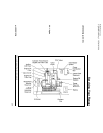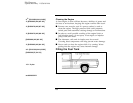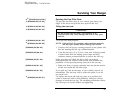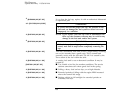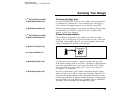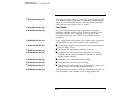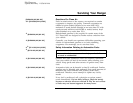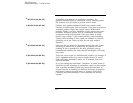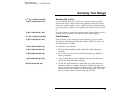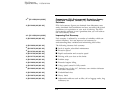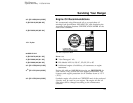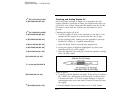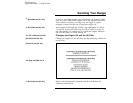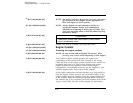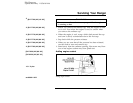
272
*
[SV10213(ALL)08/95]
If gasoline is swallowed, do not induce vomiting. If a
gasoline-methanol blend is swallowed, induce vomiting under
the direction of a physician or poison control center.
*
[SV10215(ALL)03/95]
Gasoline and gasoline-methanol blends may contain small
amounts of carcinogens, such as benzene. Long-term exposure to
unleaded gasoline vapors has caused cancer in laboratory
animals. Further, excessive inhalation of fuel vapors can cause
headache, dizziness, nausea, loss of coordination, and other
symptoms which could interfere with your ability to safely
operate your vehicle. To the extent possible, avoid breathing
vapors while refueling. If fuel vapors are inhaled in excessive
quantities, move the victim to fresh air and seek medical
attention.
*
[SV10220(ALL)08/95]
Fuels can also be harmful if absorbed through the skin. When
refueling, be careful not to splash fuel on yourself or your
clothing. If fuel is splashed on the skin, promptly remove
contaminated clothing and wash the skin thoroughly with soap
and water.
*
[SV10225(ALL)08/95]
Fuels can cause severe eye irritation and possibly eye damage. If
fuel is splashed in the eyes, remove contact lenses (if worn),
flush with large amounts of water for 15 minutes, and seek
medical attention.
*
[SV10230(ALL)08/95]
If you are taking the medication “Antabuse” or other forms of
disulfiram for the treatment of alcoholism, vapor or skin contact
with a gasoline-methanol blend may cause the same kind of
adverse reaction as drinking an alcoholic beverage. In sensitive
individuals, serious personal injury or sickness could result.
Consult a physician promptly if you experience an adverse
reaction.
File:15unsvr.ex
Update:Wed May 1 13:56:18 1996



